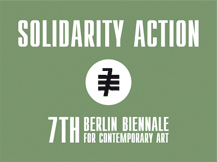If it is true that knowledge and freedom are two inseparable things and form a sort of virtuous circuit, it is also true that this duo is subjected to continuous attacks and plundering, especially because its synergy makes all the powers quiver in their boots. So just as we have learned from liberal rhetoric, for example – namely that the exercise of one requires defense of the other, and that the conquest of the latter is impossible without adequate construction and promotion of the former – we should start to understand that this link emerges as the core of a bitter, often silent conflict. The dissolving of the tie between knowledge and freedom now appears, on a global level, to be one of the main and most urgent problems of global governance. Its solution generally involves two strategic operations: demolition of the public sphere and subordination of production capacity (of entire nations and geographical areas, social classes and individuals) to the decisions of a financial oligopoly that drains off and accumulates socially produced wealth. State apparati (but this is also true of the parties of democratic republics) that function only as receptacles of corruption, and the fate of entire nations determined by the trend of their public debt, are just two glaring examples of a transformation that makes us rethink, from top to bottom, the role and potential of politics.
History should have taught us that the institutions replace old ones that are no longer effective. But who governs the course of history? Who constructs the horizon in which political decisions move? For those who might attempt to resist this historical trend, it will become immediately clear that the age-old question of “what’s to be done?” is incomplete or insufficient if it is not accompanied by the harder – but inevitable – question of “how to do it”. So programmatic planning and institutional creativity (or, if you will: politics and art) interwine. Since the task at hand is not to defend a specific culture but to reinvent, each time, the very possibility of a culture in general (this is the deeper sense of the “crisis” we are going through), the independence of every initiative of reconquest inside the crisis becomes more concrete (not just words) to the extent that it manages to combine cultural production with the moment of education, and therefore also that of study and discussion. New institutions do not only need foundations, groundwork; they also need to grow, to be regulated and used by the community.“Crisis” also and above all means: decision. The forms and paths, case by case, that will have to be taken by decisions that will transform public space and economic production can be the challenge for those arts that – having abandoned the fetish of the work and the performance, as well as the logic of the event – will again lay claim to that institutional vocation that, according to Aristotle, connoted politics as the art of government, of self and others, we might add.
GUELFO CARBONE
Member of LUM – Libera Università Metropolitana of Rome, located at ESC – independent atelier. PhD Candidate in philosophy at La Sapienza University of Rome.


